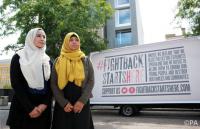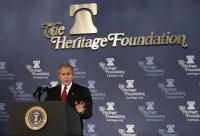-
Risk of Paris-, Nice-like terror attacks in U.K. remains a case of “when, not if”: Met commissioner

Britain is well prepared to prevent terrorist attacks similar to those which took place in France and Germany in recent weeks, but such an attack in Britain remains a question of “when, not if,” Sir Bernard Hogan-Howe, the commissioner of the Metropolitan police has said. Hogan-Howe said he was hoping to reassure the British public in the wake of recent terrorist attacks on the continent, but he admitted that the reality of the situation made it impossible to guarantee that there would be no terrorist attacks in Britain.
-
-
Remotely disabling non-cooperative vehicles
As they strive to keep the public safe, one of the key challenges facing European security services is the ability to control and stop, at distance, non-cooperative vehicles posing a threat. However, this ability presents more than a technical challenge. To comply with EU legislation, as well as adhere to ethical concerns, the technology would also have to be safe for the user, the driver (and passengers), as well as members of the public and the material infrastructure of the surrounding environment. In lab bench testing, researchers evaluated signal frequency, waveform, and duration — principally of electromagnetic pulses (EMP) and high power microwaves (HPM) — to determine which could best disrupt the functioning of a vehicle’s electronic components.
-
-
Putting the wave of Islamist violence in Europe in historical context, perspective
From the November 2015 terrorist attacks in Paris to the March 2016 attack on Brussels airport to the Bastille Day attack in Nice to the killing of a priest in north-west France, to the spate of violence in Germany, the viciousness of Islamist terrorism in Europe has shocked people in Europe and around the world. Two scholars — one left-leaning, the other a conservative historian – say that when the recent wave of Islamist terrorism in Europe is put in a global and historical context, the figures and headlines suggest a different perspective on the global spread of terrorism and its victims.
-
-
Recruiting technology companies to combat extremism on social media
Extremists are exploiting the Internet. A new study aims to shed light on how accessible extremist content is beyond social media, with a particular focus on the role played by the search engine Google. Initiatives for better understanding extremism on the Internet have predominantly been led by experts in extremist ideology or the sociological aspects of radicalization. Technology firms, key stakeholders in this fight, have played a less prominent role.
-
-
Israel opens border with Syria to humanitarian aid deliveries
The Israeli government has authorized the delivery of humanitarian aid into war-torn Syria through the nations’ shared border. While Israel activists have sought to help Syrians in the past, delivering aid across the border has been complicated by the fact that many towns and cities on the Syrian side of the Golan Heights are controlled by the Islamic State or the al-Nusra Front, an affiliate of al-Qaeda.
-
-
Killer of French priest was in jail for trying to join ISIS, but was paroled in March
Adel Kermiche, the mentally disturbed 19-year old ISIS follower who slit the throat of a Catholic priest during mass in the small town of Saint-Étienne-du-Rouvray, was sent to prison in May 2015 for trying to go to Syria to join ISIS, but was released on parole on March 2016 over the objections of the prosecution. Parts of his legal file, published in Le Monde, show that he had exhibited signs of “psychological troubles” since the age of six, and that he was regularly hospitalized for these problems.
-
-
Dutch police on lookout for three aging Baader-Meinhof gang members suspected in recent heists

Dutch police detectives are on the lookout for three aging German far-left militants who have disappeared decades ago but who have emerged as the main suspects in a series of recent robberies. Ernst-Volker Staub, 61, Burkhard Garweg, 47, and 57-year-old Daniela Klette are former members of the violent Red Army Faction (RAF) — also known as the Baader-Meinhof gang — a German militant group which terrorized Germany (then: West Germany) the 1970s and 1980s with a campaign of bombings, arson, kidnappings, and killings. The three militants are among a larger group of fugitives who have been on the run for three decades for membership of the Marxist RAF.
-
-
U.K. government should consider extremism strategy: Parliamentary panel

The Joint Select Committee on Human Rights of the British Parliament said the government should reconsider its counter extremism strategy, use the existing extensive legal framework for dealing with people who promote violence, and introduce new legislation only if it can demonstrate a significant gap. The committee’s report concludes that while there is agreement that tackling terrorism is a priority, there is no agreement about how to combat extremism, particularly since the government is also under a duty to uphold the democratic and human rights which terrorists so often aim to extinguish.
-
-
New tool keeps track of violent groups without having to geolocate the tweets
Researchers have developed new sentiment analysis algorithms which can monitor the social network Twitter in search of violent groups. The system analyzes both the messages these individuals share and how their relationships develop. The police and other law enforcement agencies could use the tool to detect critical points, threats, and areas with concentrations of potentially dangerous people.
-
-
Ex-Treasury official: Hezbollah has turned Lebanese villages into missile silos
Hezbollah has embedded its rocket arsenal in villages across Lebanon, ensuring that any Israeli strike on the Iran-backed terrorist group’s military assets will lead to mass civilian casualties, a former Treasury official said on Monday. Hezbollah has turned the Shiite villages “into essentially missile silos,” Jonathan Schanzer said. “What you have is rockets placed under homes, schools, apartment buildings, etc., so when the Israelis need to try to strike these weapons before they’re launched, it will potentially lead to mass casualties.”
-
-
Climate disasters increase risk of armed conflict in multi-ethnic countries
Climate disasters like heat-waves or droughts enhance the risk of armed conflicts in countries with high ethnic diversity, scientists found. Each conflict is certainly the result of a complex and specific mix of factors, but it turns out that the outbreak of violence in ethnically fractionalized countries is often linked to natural disasters that may fuel smoldering social tensions.
-
-
Russian government hackers leaked DNC e-mails: Cybersecurity experts

Robby Mook, Hillary Clinton’s campaign manager, said on Sunday that Friday’s release by WikiLeaks of Democratic National Committee (DNC) internal e-mails was the work of Russian government hackers. The leak, Mook said, was part of an effort by President Vladimir Putin and people in his circle to weaken Clinton and increase the chances of a Donald Trump victory in November. Cybersecurity experts support Mook’s claims.
-
-
Report: Next war with Hezbollah could cause “thousands of civilian deaths” in Israel

Israeli officials believe that a future war with Hezbollah, with its advanced Iranian-supplied rocket arsenal, could lead to “thousands of civilian deaths,” according to a new study. Hezbollah is now believed by Israel to possess about 150,000 rockets, which exceeds the combined arsenals of all non-U.S. NATO countries and is ten times larger than its arsenal before the 2006 war.
-
-
Do think-tanks matter? Expert says “think again”

A recently published study found that public sector workers judged studies and reports generated by scholars affiliated with universities to be more credible than reports or studies purported to be from a think-tank or advocacy group.
-
-
There is no manual on how to defeat ISIS – “we’re writing it”: John Kerry
Speaking Thursday at the opening of a 3-day meeting in Washington, D.C. of thirty countries currently engaged in fighting ISIS, Secretary of States Joh Kerry said, “We are engaged in an historic effort. Nothing like this coalition has ever before been assembled. And we’re not following a manual on antiterrorist coalition-building, we’re writing it.”
-
More headlines
The long view
What Does Netflix’s Drama “Adolescence” Tell Us About Incels and the Manosphere?
While Netflix’s psychological crime drama ‘Adolescence’ is a work of fiction, its themes offer insight into the very real and troubling rise of the incel and manosphere culture online.
A Shining Star in a Contentious Legacy: Could Marty Makary Be the Saving Grace of a Divisive Presidency?
While much of the Trump administration has sparked controversy, the FDA’s consumer-first reforms may be remembered as its brightest legacy. From AI-driven drug reviews to bans on artificial dyes, the FDA’s agenda resonates with the public in ways few Trump-era policies have.
The Center Can Hold — States’ Rights and Local Privilege in a Climate of Federal Overreach
As American institutions weather the storms of executive disruption, legal ambiguity, and polarized governance, we must reexamine what it means for “the center” to hold.
How to Reverse Nation’s Declining Birth Rate
Health experts urge policies that buoy families: lower living costs, affordable childcare, help for older parents who want more kids
Foundation for U.S. Breakthroughs Feels Shakier to Researchers
With each dollar of its grants, the National Institutes of Health —the world’s largest funder of biomedical research —generates, on average, $2.56 worth of economic activity across all 50 states. NIH grants also support more than 400,000 U.S. jobs, and have been a central force in establishing the country’s dominance in medical research. Waves of funding cuts and grant terminations under the second Trump administration are a threat to the U.S. status as driver of scientific progress, and to the nation’s economy.
The True Cost of Abandoning Science
“We now face a choice: to remain at the vanguard of scientific inquiry through sound investment, or to cede our leadership and watch others answer the big questions that have confounded humanity for millennia —and reap the rewards.”
